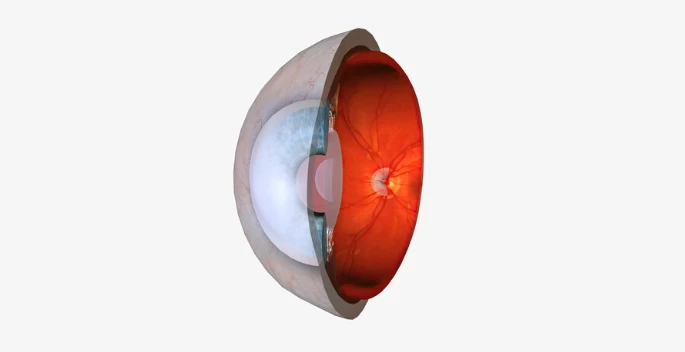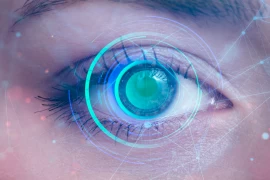
Excimer Laser and Smart Lens Applications: Innovative Solutions in Eye Health
- Excimer Laser and Smart Lens Applications: Innovative Solutions in Eye Health
- What is Excimer Laser?
- Who is Eligible for Excimer Laser?
- How is Excimer Laser Performed?
- Post-Excimer Laser Care
- Who is Not Suitable for Excimer Laser?
- What is Keratoconus?
- Keratoconus Treatment Options
- What are Smart Lenses?
- How is Smart Lens Surgery Performed?
- Are Smart Lenses Suitable for Everyone?
- Conclusion
Eye health is a critical factor that directly affects the quality of life. Among the innovative methods used in the treatment of refractive errors (myopia, astigmatism, hyperopia), excimer laser and smart lens applications stand out. In this article, I will explain what these two treatment methods are, how they are applied, and who they are suitable for. Additionally, we will explore keratoconus and its treatment options.
What is Excimer Laser?
Excimer laser, commonly known as eye laser surgery (referred to as refractive surgery in medical terms), is a type of laser used to treat individuals with vision problems like myopia, hyperopia, and astigmatism who prefer not to use glasses or contact lenses. It is employed in refractive surgery procedures such as LASIK (Laser-Assisted in Situ Keratomileusis) and PRK (Photorefractive Keratectomy). Since 1992, excimer laser has been safely used to reshape the cornea, the transparent front layer of the eye, and correct refractive errors.
Who is Eligible for Excimer Laser?
Excimer laser is preferred for individuals aged 18-40 with vision problems such as myopia, hyperopia, or astigmatism who wish to avoid glasses or contact lenses. However, the candidate's eye structure must be suitable for laser treatment, and their eye prescription should have remained stable for the past year. The suitability of the eye structure is assessed by evaluating corneal characteristics (pachymetry, topography, tomography, and aberration) and the individual’s systemic health conditions.
How is Excimer Laser Performed?
Excimer laser treatment is performed under topical anesthesia (using eye drops) and does not require hospitalization. The procedure itself is entirely painless and takes about 10-15 minutes in total, with the laser application lasting only 5-10 seconds. After the procedure, patients may experience burning, stinging, and tearing for the first few days. A short recovery period of a few days is typical. To enhance comfort, a contact lens is applied post-procedure and is removed during follow-up visits a few days later.

Post-Excimer Laser Care
After laser surgery, it is crucial to follow your doctor’s recommendations and use prescribed medications regularly. Digital screen usage should be minimized, and rubbing or touching the eyes should be avoided. Avoid allowing water, soap, or shampoo to come into contact with the eyes and refrain from being in dusty or dirty environments. Eye makeup should not be applied during the first week after the procedure.
Who is Not Suitable for Excimer Laser?
Excimer laser is not suitable for individuals with uncontrolled diabetes, rheumatologic diseases, a single functional eye, pregnancy, or breastfeeding. It is also unsuitable for those taking oral vitamin A for acne treatment, individuals with severe dry eye, or very high prescriptions. If there is suspicion of keratoconus in laser eligibility tests, treatment can only proceed with hybrid laser applications combined with cross-linking therapy. However, excimer laser is not performed for patients diagnosed with keratoconus.
What is Keratoconus?
Keratoconus is a progressive condition in which the cornea, the transparent, dome-shaped front layer of the eye, thins and protrudes outward, taking on a cone-like shape. This affects the eye’s ability to focus light properly, leading to blurry vision. It typically begins in early adolescence and becomes more apparent in the 20s. Eye rubbing and allergies are significant risk factors. Frequent changes in glasses prescriptions and poor vision despite corrective lenses are key indicators. Without early diagnosis and treatment, advanced procedures like corneal transplantation may become necessary.

Keratoconus Treatment Options
Treatment options for keratoconus include:
- Glasses and Contact Lenses: In the early stages, glasses or soft, rigid, or hybrid contact lenses may improve vision.
- Corneal Cross-Linking (CXL): This treatment strengthens the cornea, halting the progression of the disease and preventing the need for a corneal transplant.
- Intracorneal Ring Segments (Intacs): Rings inserted into the cornea improve its shape and enhance vision.
- Corneal Transplantation (Keratoplasty): In advanced stages, corneal tissue is replaced with healthy donor tissue.
What are Smart Lenses?
Smart lenses (premium lenses) are intraocular lenses often preferred for individuals over 40 who experience difficulty seeing up close (presbyopia) and have refractive errors like myopia, hyperopia, or astigmatism. These lenses eliminate the need for glasses by providing clear vision at near, intermediate, and distant ranges. Unlike excimer laser, smart lenses also address presbyopia in individuals over 40.
How is Smart Lens Surgery Performed?
Smart lens surgery is essentially a cataract surgery. It involves removing the natural lens of the eye, regardless of whether the individual has a cataract, and replacing it with an artificial lens. The procedure is performed in an operating room under local anesthesia and typically takes 15-20 minutes. Recovery is quick, and patients can resume daily activities within a few days. These lenses are permanent and do not require maintenance.
Are Smart Lenses Suitable for Everyone?
Smart lenses are not suitable for every eye or patient. Factors such as the individual’s eye structure, occupation, age, frequency of night driving, and the presence of conditions like diabetes, glaucoma, or macular degeneration must be carefully considered. Determining the most suitable lens model requires collaboration between the doctor and the patient.
Conclusion
Excimer laser and smart lens applications offer innovative and effective solutions for correcting refractive errors in individuals who wish to avoid glasses or contact lenses. These treatments significantly improve quality of life by providing clear vision without intermediaries.
To learn more about eye health and discover the most suitable treatment options for your specific needs, consult an ophthalmologist.

Dr. Konuralp Yakar
Ophthalmology Specialist





